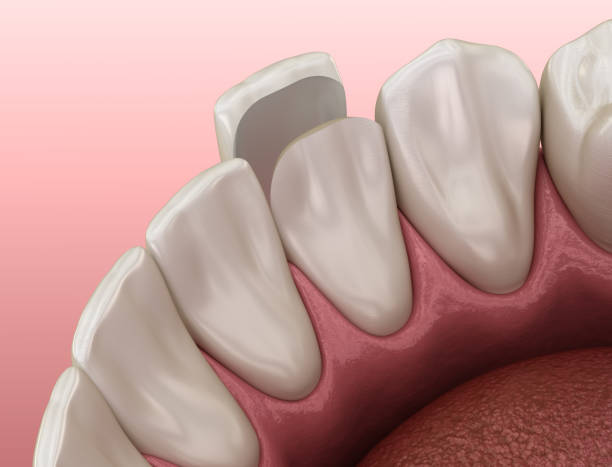Veneers

Veneers are best described as being akin to false nails for your teeth. It involves finding and choosing the appropriate shade, the dentist then shaves a fraction of the tooth surface off to give the veneer a space to fit in so that it does not stick out too much or interfere with the bite.
After your dentist has finished preparing the tooth, they will take an impression of your teeth, which will then be sent to a lab together with the shade of your choice. The lab then work hard over the next week to construct the veneer of your choice. Over this week usually the patient would have a temporary placed over the teeth depending on the extent of the preparation.
Why Veneers?
- Veneers are for front teeth that can either be chipped broken, worn down or discoloured.
- Veneers allow you to chose the shade and can make your smile brighter and whiter.
- Veneers do not discolour as easily as natural teeth.
What is the process?
- Your dentist will start by doing some slight or minimal preparation.
- Your dentist will take impressions of the teeth to be veneered.
- The impressions will be sent to the lab and the veneers will be created there.
- In the meanwhile for the next week or two you will have temporary veneers to wear while the lab is preparing the final veneers.
| Veneer Type | Price |
|---|---|
| Porcelain Veneers: A Timeless Choice | from £693 |
| Emax Veneers: Superior Aesthetics and Strength | from £842 |
| Composite Veneers: Affordable and Effective | from £645 |
| Direct Composite Bonding: Quick and Economical | from £345 |
| Zirconia Veneers: Strength Meets Aesthetics | from £745 |
| No-Prep or Minimally Invasive Veneers: Modern and Conservative | from £848 |
You may have heard of a new and popular option known as “composite bonding”. This is a very popular as it depends entirely on the bonding strength of the composite resin to the tooth material, which means that you will need very little tooth preparation if any.
Composite bonding is a very popular option when it comes to repairing teeth, or building up teeth that are otherwise in good shape and not too discoloured. To find out more about composite bonding CLICK HERE